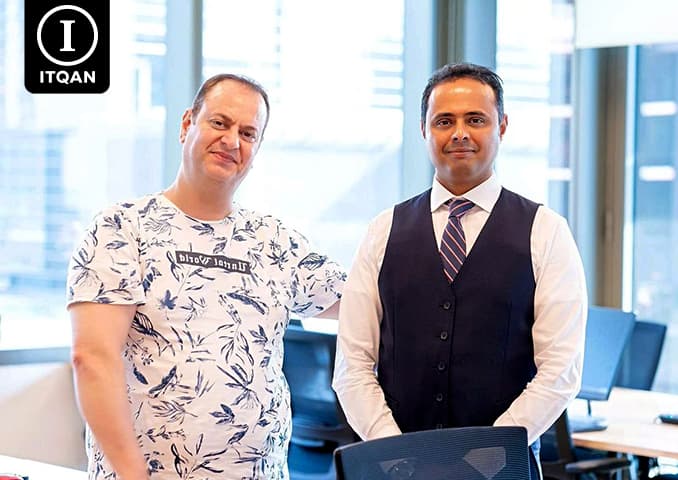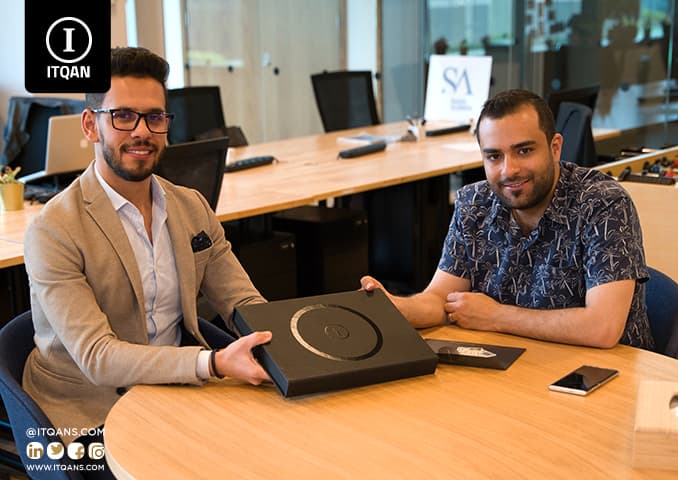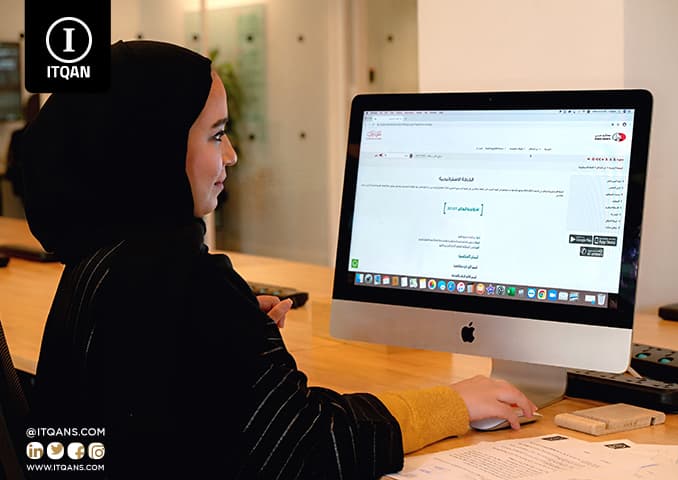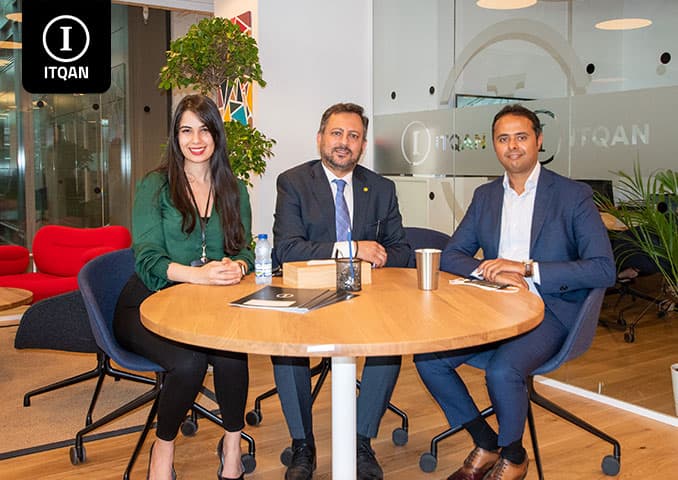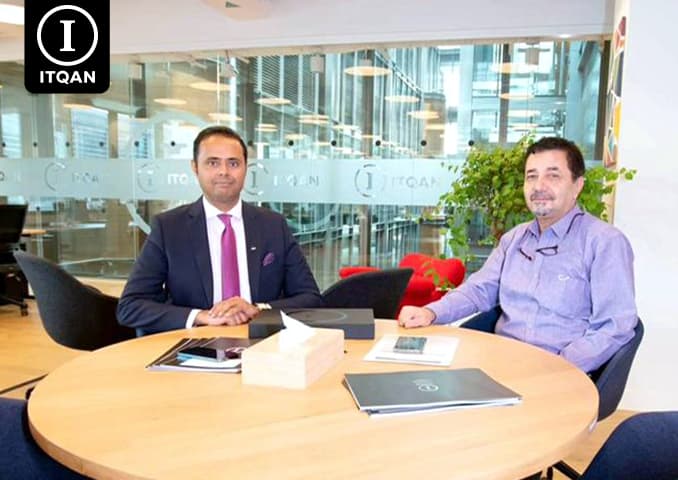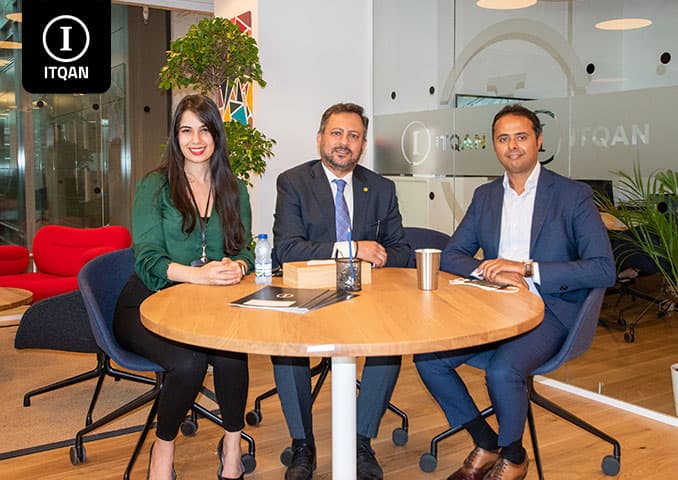The United Arab Emirates is considered one of the most prominent global investment destinations thanks to its stable and stimulating economic environment and laws that keep pace with global developments. The UAE offers foreigners multiple investment opportunities across a range of vital sectors, making it a major attraction for investors from around the world.
Since adopting investment promotion policies in Dubai , the UAE has been able to create an attractive investment environment thanks to its advanced development strategies. The country seeks to strengthen its position as a global economic center by offering a wide range of investment opportunities that include industrial, service and commercial sectors. Free zones, which are one of the most prominent strengths, provide foreign investors with the possibility of owning 100% of companies, which enhances their ability to fully control and achieve profits with maximum efficiency.
The UAE has also made major transformations in property laws, launching new opportunities for foreigners to invest in non-free sectors, which reflects its commitment to developing a more open and transparent business environment. Within this framework, the state provides a range of tax facilities and exemptions, including not imposing taxes on personal or commercial profits in most sectors.
Moreover, the flexible work environment and advanced infrastructure contribute to enhancing the competitiveness of investments, while emphasizing adherence to legal and ethical standards, and ensuring workers’ rights. The UAE offers foreigners exciting opportunities for growth and innovation, making it a preferred destination for investors looking for a conducive and sustainable business environment.

جدول المحتوى
ToggleThe mission of the Emirates Investment Authority for foreigners
The Emirates Investment Authority plays a pivotal role in attracting and promoting foreign investments in the Emirates, as it seeks to provide an integrated and business-friendly investment environment. The Authority was established with the aim of facilitating and simplifying investment procedures, and ensuring full support for foreign investors. The Authority is the main point of contact for investors, providing comprehensive advisory services that include guidance on licensing requirements, appropriate company types, and legal procedures necessary to establish a business.
The Authority works to provide multiple incentives to attract foreign investments, such as tax facilities, customs exemptions, and providing financing opportunities supported by banks and financial institutions. The Authority also provides accurate information about government regulations and policies related to investment, which contributes to reducing the risks associated with investing in a new environment.
By providing tailored support, the Authority contributes to accelerating company registration and establishment processes, helping foreign investors quickly adapt to the local market. The Authority’s services also include organizing workshops and seminars to educate investors about economic trends, market opportunities, and best practices in business management.
Moreover, the Authority cooperates with other government agencies to enhance mutual understanding and develop investment-supportive infrastructure, such as free trade zones, business centers, and logistics facilities. In this way, the Emirates Investment Authority plays a key role in promoting sustainable economic growth, and strengthening the UAE’s position as a global center for attracting foreign investment, which enhances economic development and creates new job opportunities throughout the country.
Procedures to encourage investment by the Emirates Investment Authority:
The Emirates Investment Authority follows a set of strategic measures to encourage foreign investment and enhance the investment environment in the country. These procedures include:
- Providing legal and procedural facilities: The Authority seeks to simplify the legal and administrative procedures related to establishing companies. This is done by expediting license issuance and renewal processes, and providing advice on legal and compliance requirements.
- Issuing commercial licenses: The Authority provides various options for obtaining commercial licenses, including licenses for free zones that allow foreigners to own 100% of company shares without the need for a local partner.
- Providing tax and customs incentives: The Authority provides tax incentives, such as exemptions or tax relief, in addition to exemption from customs duties on import and export, which helps companies reduce costs and increase their competitiveness.
- Providing information and guidance: The Authority provides comprehensive information about investment opportunities and local regulations, which helps investors understand the investment environment and make informed decisions. The Authority also provides consultations on choosing appropriate investment areas.
- Supporting innovation and technology: The Authority encourages investment in technological and innovative sectors by providing special support to emerging and technology companies, including financing and incubation facilities in business incubators.
- Facilitating access to financing: The Authority provides information about available financing sources, including bank loans and government financing programs, and helps investors apply for the necessary financial support for their projects.
- Organizing events and seminars: The Authority organizes marketing events, seminars and workshops on investment, to educate investors about economic opportunities and trends and exchange knowledge between local and international investors.
- Enhancing infrastructure: The Authority works to improve the investment infrastructure in the Emirates by supporting the development of free zones and logistics centers, and providing a modern and advanced work environment for companies.
UAE investment conditions for foreigners
Starting investment in the UAE for foreigners requires following specific steps to ensure success and compliance with legal requirements. Here’s a step-by-step guide to start investing:
- Determine the investment field: Choose the field you would like to invest in based on your interest and the opportunities available in the market. The fields can be as diverse as real estate, technology, tourism, or manufacturing.
- Prepare a feasibility study: Prepare a comprehensive feasibility study to evaluate the feasibility of the project. The study includes market analysis, cost and revenue estimation, and risk assessment.
- Choose the type of company and location: Determine the type of company you wish to establish (such as a limited liability company, joint stock company, or a branch of a foreign company) and specify the business location, whether it is in a free zone or in a non-free zone.
- Registration and obtaining licenses: Register your company with the local economic department or the relevant authority in the free zone. You will need to submit documents such as articles of incorporation, business plan, and passports.
- Open a bank account: Open a company bank account in a local bank. You will need to provide legal documents for the company such as licenses and articles of incorporation.
- Secure the necessary licenses: Obtain the licenses and permits required to conduct business activity. These licenses include business licenses, health permits, or other licenses depending on the type of activity.
- Recruitment and Training: Hire and train the right staff. Ensure compliance with local labor laws and employment requirements.
- Secure the site and infrastructure: Secure the work site and prepare the infrastructure necessary to operate the company. This includes furnishing the office or site, and setting up the necessary equipment.
- Marketing and Promotion: Develop a marketing plan to promote your products or services. Use appropriate marketing strategies to attract customers and enhance your presence in the market.
- Tax and Administrative Compliance: Ensure compliance with all local tax and administrative laws, including submission of required tax and accounting reports.
- Insurance and protection: Obtain appropriate insurance to protect assets and businesses from potential risks, such as property or casualty insurance.
- Monitor performance and expansion: Monitor the performance of your business regularly and be prepared to adapt to changes in the market. Explore expansion and growth opportunities to improve and increase profitability.
Areas of UAE investment for foreigners
The UAE offers a variety of investment areas that attract foreigners thanks to its developed economic environment and modern infrastructure. Here are some of the most prominent investment areas in the UAE :
- Real Estate: The real estate market in the Emirates is considered one of the attractive markets for foreign investors, thanks to huge projects and development areas such as Dubai Marina, Yas Island, and Downtown Dubai. Investors can buy and sell residential and commercial properties, and there are also opportunities in major development projects.
- Finance and banking: Great investment opportunities are available in the financial sector and banking services, including banks, insurance and investment companies. The UAE is a major regional financial center and has a developed infrastructure for financial transactions.
- Technology and Innovation: The UAE encourages investment in the technology and innovation sector, including artificial intelligence, financial technology, and digital solutions. The government supports technology companies through business incubators and entrepreneurial projects.
- Tourism and Hospitality: The tourism and hospitality sector is witnessing remarkable growth in the Emirates, thanks to the advanced infrastructure and world-class tourist attractions. Investment opportunities include hotels, resorts, and tourist facilities.
- Manufacturing and manufacturing industries: The UAE offers opportunities in the manufacturing and manufacturing sector, thanks to free trade zones such as Jebel Ali, which provide a favorable environment for investment in heavy and light industries.
- Energy and Natural Resources: Investment opportunities in the energy and natural resources sector include renewable energy such as solar and wind energy, in addition to gas and oil projects, as the UAE seeks to enhance energy sustainability.
- Agriculture and Food Security: In light of the growing interest in food security, there are investment opportunities in sustainable agriculture and agricultural technology projects, including vertical farming and technical solutions to improve productivity.
- Trade and retail: The trade and retail sector is one of the important sectors in the Emirates, as investors can enter the markets by establishing stores, shopping centers and distributing various products.
- Healthcare: There are significant opportunities in healthcare, including investment in hospitals, clinics, and specialized medical facilities. The UAE is investing heavily in improving and expanding health services.
- Environmental investments: include investment opportunities in the areas of environmental protection, waste management, and recycling. The UAE aims to promote environmental sustainability and develop environmentally friendly projects.

UAE investment costs for foreigners
Investment costs in the UAE for foreigners depend on a set of factors that affect the amount of spending required. Among the main factors affecting costs are:
- Licenses and Government Fees: To obtain the necessary licenses to establish a company, investors must pay company registration and business license fees, which vary depending on the type of company and type of license required.
- Office or business location rent: The cost of renting commercial or office space depends on the location and available facilities. Prices can be higher in central areas or free zones than in other areas.
- Taxes and other fees: In the UAE, there are usually low or no taxes on profits in most sectors, but there may be other fees such as customs duties or value-added tax on some services and goods.
- Recruitment and Training: Costs associated with the investment also include recruitment and training expenses for employees. This includes salaries, social insurance, and training to improve team efficiency.
- Operating costs: Include daily operating costs such as raw materials, general services, and maintenance. These costs depend on the size and type of business.
- Legal and accounting consulting: Investors may require legal and accounting consulting services to ensure compliance with local laws and taxes, which adds additional cost.
- Marketing and Promotion: To make any investment successful, a budget must be allocated for marketing and promoting products or services. These costs vary based on the marketing strategies and advertising media used.
- Infrastructure and Equipment: The costs of establishing and equipping the infrastructure and facilities needed to operate a business vary, including the purchase of equipment and furniture.
- Insurance: It may be necessary to pay insurance costs to cover potential damages, such as property insurance and insurance against various risks.
At the conclusion of our article about investing in the Emirates for foreigners, it is clear that the United Arab Emirates offers an exceptional investment environment thanks to modern policies and legislation that support growth and innovation. By establishing integrated free zones, the UAE offers exciting investment opportunities while ensuring full ownership by foreigners, enhancing the competitiveness of international investors. In addition, a favorable tax environment lacking taxes on business or personal profits contributes to attracting capital and promoting economic growth.
The UAE’s commitment to simplifying regulatory and licensing procedures makes it easier for foreign investors to enter the market smoothly, reducing the red tape that startups may face. Recent trends in developing legislation to expand the scope of foreign ownership outside the free zones indicate the UAE’s desire to attract more global investments and enhance economic diversification.
The UAE is also considered a safe and stable investment environment, making it a preferred destination for investors looking for opportunities in the Middle East. With its commitment to promoting workers’ rights and ensuring a transparent and robust trading environment, the UAE creates an ideal balance between facilitation and oversight. Furthermore, compliance with international anti-money laundering and terrorist financing legislation contributes to building a strong reputation as a reliable investment destination.
The most important frequently asked questions about the Emirates Investment Authority for foreigners
Does the Investment Authority provide any incentives to foreign investors?
Yes, the Authority provides incentives such as tax exemptions, customs facilities, and special privileges in free zones to attract foreign investments and promote economic growth.
How can I obtain a residence visa for investors?
A residence visa for investors can be obtained by submitting an application to the competent authority, and providing the necessary documents such as proof of ownership, company documents, and visa requirements.
Are there any hidden fees or costs I should be aware of?
Hidden costs may include administrative fees, additional registration fees, or unexpected operating expenses. It is important to conduct a comprehensive feasibility study to understand all the costs associated with the investment.
How can I monitor my status as an investor after starting work?
The investment status can be monitored through regular communication with the Investment Authority, and ensuring compliance with legal requirements and required reports. The Authority also provides ongoing support to investors to ensure the success of their investments.





